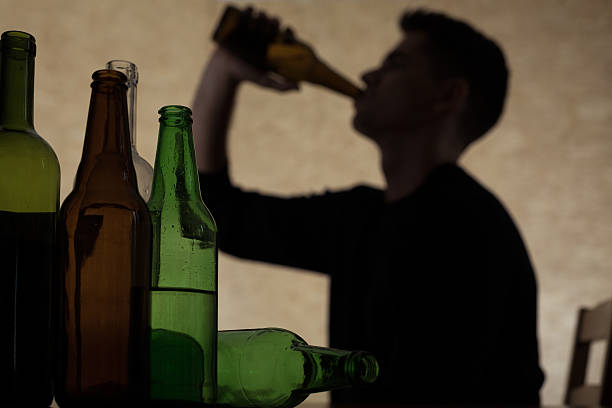Forget the Word Alcoholic!

Drinking alcohol may lead others to label you as an alcoholic. Forget the word alcoholic. Let’s replace that with ‘drink problem’.
If you are finding it difficult to exercise control over your levels of drinking, are suffering from regular hangovers, sometimes have a ‘blackout’ and find it difficult to recall some part of last night’s binge, or drink when you are alone or feel down, then you most likely have a drinking problem.
You can refer to the government’s safe drinking guidelines or take other brief tests to determine whether you have a drinking problem. But the fact that you are reading this article means you probably already know the answer – either for yourself or a loved one.
Most people with drinking problems can present a convincing case for why they are not an alcoholic and regularly do so to their family and friends. For example, they can point out that they only ever drink in the evenings, never drink spirits, can give up for short periods, or can’t remember the first time they drank alcohol – not because they are currently drunk but because they’ve heard that all alcoholics can!
Convenient shield
The term alcoholic can therefore act as a convenient shield for someone in denial about their drinking to hide behind. As long as they have not sunk to the level of that tramp they see swigging cheap booze every day near their local train station, they will take comfort from the fact that they do not consider themselves an alcoholic. This can make them suffer for longer than necessary due to failing to acknowledge and address their drinking problem.
However mild someone’s drinking problem, their alcohol intake will gradually increase as their body becomes used to current levels and requires more to create the same effect. Delay, therefore, equals deterioration.
Facing the music
If you had reason to believe that your car had developed a problem that could result in the engine blowing up while you were driving down the road, would you even think about not taking it to a workshop to have it examined?
Similarly, if you were reasonably sure that you had the first signs of a computer virus that could gradually corrupt all your data and eventually make your computer unusable, would you hesitate to call a computer engineer?
Don’t delay
You may regularly try to convince yourself that you’ll deal with the problem at some unspecified date in the future. Still, you feel you first need to negotiate some stressful hurdle in your life, such as an issue at work or a problem in a relationship or within your family. Try asking yourself how long you have been taking this attitude, and you will likely conclude that the future should start now!
Another common reason for delaying facing the music is fear of being told that you should never drink again, an idea that may seem unthinkable.
Alcoholics Anonymous (AA) suggests that you try to keep sober “one day at a time” – just ensuring that you do not pick up a drink today and not think about the future.
Nothing to fear
Even in cases where becoming completely abstinent is the only solution, it doesn’t mean that you will be endlessly craving alcohol or feeling that you will be losing out in any way. Experience indicates that craving is lifted by about 90 days – that’s why AA suggests “keep coming” daily for the first 90 days. Three months is the Gold Standard of duration in treatment centres.
Think of it this way: all you are giving up, apart from a series of temporary drug-induced highs, is a continuous source of problems, and by stopping, you will command massive respect from those around you. It will help in healing broken relationships and leave you free to achieve whatever you desire. And, most of all, you will become a more amenable, friendly, approachable, and ethical person who can succeed in your pursuits.
Indeed, you will become the envy of many. It may be hard to believe, but some teetotalers will tell you that if they have one major problem, it has to do with jealousy from other people! Some may even try to sabotage your plans by encouraging you to drink.
Teetotalers often make ideal friends and partners because they never let out secrets as they did when drunk, and they have more time to indulge in a wide range of interests. They also often excel in the workplace due to having more energy than most colleagues and being less prone to taking time off and making errors.
Act before it’s too late
Drinking excessively over a long time can have grave adverse consequences. It can be fatal – alcoholics are very vulnerable to severe accidents, such as while driving or even falling down the stairs or slipping in the bathroom. They lose jobs, partners, friends, time, money, opportunities and health. Low self-worth is a consequence of so many losses. For some, the deterioration may be gradual, while for others, it is rapid.
It is better to act before it’s too late. Contact an experienced treatment facility for professional support. You have nothing to lose but everything to gain!
Call +91 90008 50001 / 78930 03070 / 98490 69609 or email info@hopetrustindia.com for the best in addiction treatment!